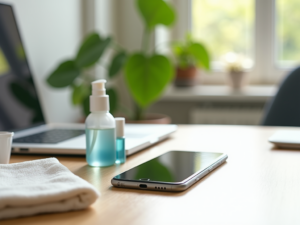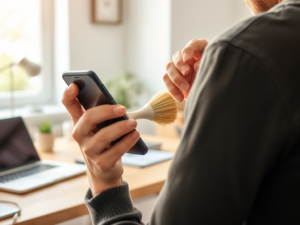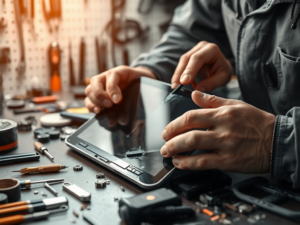Losing your phone can feel like losing a part of yourself. It holds not just your contacts but memories, schedules, and sensitive information that you rely on daily. When faced with this daunting situation, it’s essential to evaluate your options carefully. While the immediate impulse might be to rush out and buy a new one, taking a moment to reflect on the right course of action can prevent unnecessary expenses or hasty decisions. This article aims to guide you through the maze of choices available when replacing a lost phone, ensuring you make an informed decision. We will cover everything from recovery options to the intricacies of buying new, refurbished, or using insurance.
Understanding the Impact of Losing a Phone

Understanding the implications of losing your device is the first step toward effective replacement. With our phones being so integral to our daily lives, their loss can disrupt not only communication but your entire routine. Many people rely on their devices for everything from navigation to managing their finances. When that connection is severed, the void it creates can be disorienting. On top of the emotional turmoil, there can be practical concerns—like the potential for unauthorized access to sensitive information. Therefore, it’s crucial to assess both the immediate and long-term impacts of losing your phone.
Assessing Your Situation

Before rushing into a replacement, take the time to evaluate your situation. Consider what information and features you relied on your phone for, and check for any immediate recovery options. This assessment is critical, as it allows you to make a more informed decision when it comes to replacing your device. Ask yourself: can I recover my lost phone? What about the data that was on it? Take a deep breath and approach the situation logically, as this will help you identify the best course of action moving forward.
The first step is to see if you might be able to recover your lost phone. Modern smartphones come equipped with various tracking technologies that can aid in this. Here’s a quick list of what to do:
- Use tracking apps like Find My iPhone or Find My Device for Android.
- Reach out to local lost and found departments or retrace your steps.
- Notify your mobile carrier of the loss to prevent unauthorized usage.
Options for Replacement
Once you’ve assessed your situation and explored potential recovery, it’s time to look into replacement options. The choices can vary widely depending on your budget, preferences, and urgency. Evaluating the pros and cons can make this decision feel less daunting. There are generally three primary paths to consider: buying a new phone, opting for a refurbished device, or utilizing insurance coverage if applicable. Each of these options comes with its own set of advantages and disadvantages that need to be carefully weighed.
Buying a New Phone
Purchasing a new phone is the most common and straightforward option. With new models constantly being released, consumers often find themselves inundated with choices. This variety can be both exciting and paralyzing, especially if you are not sure what you need. Determining your budget is the first step, as it will narrow down your options considerably. Next, research different brands and models to find what best suits your needs. Additionally, many carriers have trade-in programs or deals that can help offset the costs of a new device.
When considering a new purchase, keep these points in mind:
- Understand the features that are most important to you.
- Keep an eye on warranty options and customer reviews.
- Look for seasonal sales or promotions to maximize value.
Refurbished or Used Devices
If budget constraints are a concern, consider refurbished or used phones. These devices can be a great way to save money while still getting a reliable phone. On the downside, they may not come with the latest features. Determine whether the reduced price is worth the potential trade-offs in quality and warranty. Always choose a reputable seller and check for reviews before finalizing a purchase. Here’s a simple table to outline the pros and cons:
| Pros | Cons |
|---|---|
| Lower costs | Potentially limited warranties |
| Environmentally friendly | May have wear and tear |
| Good for budget-conscious consumers | Not the latest technology |
Using Insurance or Warranty Options
If you had insurance on your phone or if it’s under warranty, you may have coverage for loss. This is often the best-case scenario for thinning the financial burden of replacement. Make sure to understand the specifics of your coverage. Each insurance provider has different stipulations regarding lost devices. For example, policies might require police reports or proof of purchase. Be proactive about contacting your insurance provider to understand the claims process.
Follow these steps to file a claim:
- Collect necessary documentation, like the phone’s serial number.
- Contact your insurance provider to understand the claim process.
- Keep copies of all correspondences for future reference.
Temporary Solutions While You Replace Your Phone
If replacing your phone will take some time, you might want to consider temporary solutions. Using an old phone, if available, can allow you to remain connected. Alternatively, utilizing a landline for urgent communications might be a stopgap solution. Additionally, consider connecting with family and friends for temporary device usage. Whatever method you choose, ensure that you maintain some form of communication while you navigate the replacement process.
Conclusion
Replacing your lost phone doesn’t have to be stressful if you understand your options and approach the process methodically. Evaluate your needs carefully, explore all available options—whether new, refurbished, or through insurance—and consider temporary solutions to stay connected. Remember that while the loss of a phone can be a hassle, it also presents an opportunity to reassess your needs and possibly even upgrade your technology. Ultimately, being informed can empower you to make the best decision moving forward.
Frequently Asked Questions
- What is the first step to take if I lose my phone? Check for tracking options using services like Find My iPhone or Find My Device, and retrace your steps.
- Can I recover data from a lost phone? If you’ve backed up your data regularly, most data can be restored on a new device after replacing your phone.
- Is it better to buy a new phone or a refurbished one? It depends on your budget and needs. New phones come with the latest features and warranties, while refurbished ones are typically more affordable.
- How long does it take to process an insurance claim for a lost phone? The processing time can vary, but most claims are processed within a few days to a couple of weeks if all documentation is in order.
- Are there any precautions to take to prevent future loss? Consider using a tracking app, securing your phone with a lock, and being mindful of where you place your device when in public.












